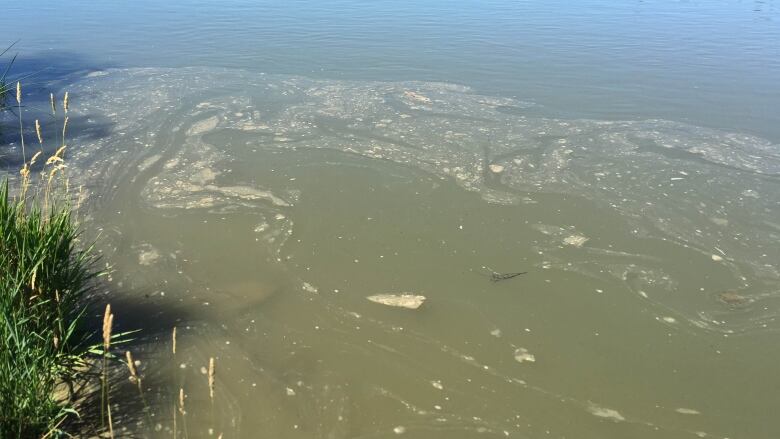Regina professor fights for Sask. gov't to release Husky oil spill documents
Trish Elliott says she had no choice but to take the government to court

Trish Elliott saysshe had no choice but to take her fight with the provincial government to Saskatchewan's highest court.
Elliott, a professor at the University of Regina, has been trying to obtain documents related to the 2016 Husky oil spill from the provincial government.
She submitted access to information requests to theMinistry of Energy and Resources and theMinistry of Environment. Bothdenied Elliott's requests, so she submitted the cases to the privacy commissioner for review.
"The Information and Privacy Commissioner decided that the documents should be released to me, but has no order making powers," Elliott said."At that point you have to go to court there's no other recourse."
Ronald J. Kruzeniski, the province's privacy commissioner,found the province's reasoning to be unsubstantiated and recommended the release of records and information.
The province denied an interview request. A spokesperson wrote in an emailthat"it would be inappropriate to comment further" because the matter is scheduled to be heard in court.
However, one of theprivacy commissioner's review reports shows the province withheld information because of "an active prosecution related to the pipeline."
Saskatchewan's case against Husky Energy Ltd. is scheduled to be back before court on June 21.
Elliott said concerns about court proceedings are"legitimate," but that she also believes the privacy commissioner's judgment is sound.
"He knows the danger of destroying a proceeding, so I think he's considered that carefully and made his determination," she said.
Elliott said she'sseeking information on inspections in the five years prior to the spill, along with information including discussions and correspondence about the aftermath. This is part of wider research on Saskatchewan's oil and gas regulations.
"The Husky spill was certainly not the biggest spill in Saskatchewan history, I mean, it wasn't even the biggest spill that year.But it was a high profile one," she said.
The spill saw 225,000 litres of diluted heavy oil leak from a Husky pipeline near Maidstone in west-central Saskatchewan.
About 40 per cent of the leaked crude made it into the river, causing an oil plume that flowed hundreds of kilometres downstream and forced the cities of North Battleford, Prince Albert and Melfort to shut off their water intakes for almost two months.
Elliott has launched a fundraising campaign to help with the cost of the appeal. Elliott estimated the "intimidating" court process will cost somewhere from $8,000 to $12,000.
She said sheis concerned by the high cost and by the government's refusal to listen to the privacy commissioner's recommendations.
"I would worry if the government got the message that they can ignore those recommendations knowing that nobody can afford to challenge them," she said.
"We should be able to ask our government [for]the background on the issues that impact us."

She also said this incident is an example of why the privacy commissioner "needs more power and more resources."
This isn't the first time the government has rejecteda recommendationfrom the provincial privacy commissioner to release records and information aboutHusky pipeline inspections.
A similar recommendation came after theNDPrequested"all results from on-site tests and inspections of Husky pipelines since 2011" in 2016.
At the time, the commissioner cited the ongoing investigation into the spill as its reason for not releasing information.
Elliott said the ideal outcome of this would be to have the province reconsider its positionand work alongside her to determine what might be able to be released.












_(720p).jpg)


 OFFICIAL HD MUSIC VIDEO.jpg)
.jpg)



























































































